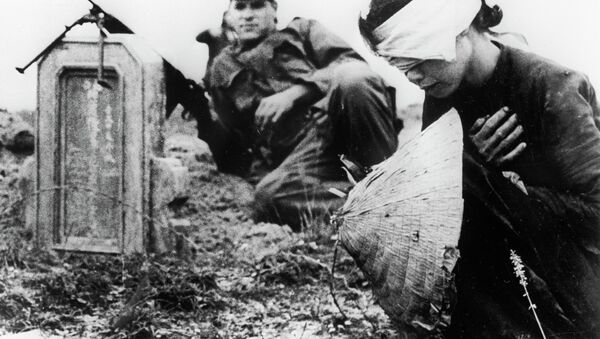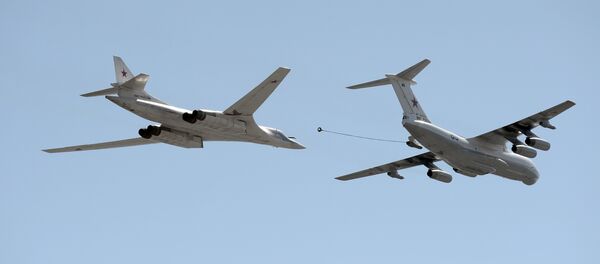"Six hundred and forty thousand hectares [almost 2,500 sq. miles] of Vietnamese soil is still poisoned by dioxin; 600,000 bombs litter our fields and forests. Forty years have passed, but dioxin victims still give birth to children with crippling disabilities, people still explode on landmines left behind by US punitive squads against Vietnamese guerrilla fighters. The Vietnamese land is still barren," Vu Quang Khien, an anti-US resistance veteran, told Sputnik.
Vietnamese veterans spoke about living in post-war Vietnam as the country prepares to mark the 40th anniversary of the nation's victory over US forces and its subsequent reunification on April 30, 1975.
Ngo Dang Tri, a North Vietnamese veteran, described to Sputnik his experience of first meeting his compatriots from the South in 1975: "With what horror people in the South Vietnamese villages met us at first. [US military] had been cramming this idea into their heads that merciless, murderous Communists were upon them, but when villagers met their saviors at last their opinion of us instantly changed, and they greeted us, guys from North Vietnam, with open hearts."
Kennedy's Oscar-nominated movie kept a sharp focus on well-meaning US forces in April 1975 as they fled the South Vietnamese capital Saigon. It said nothing of the four million people killed in the war or the Vietnamese jungles, fields and rivers poisoned by Agent Orange, used by the US military to wage war against the South Asian nation.



